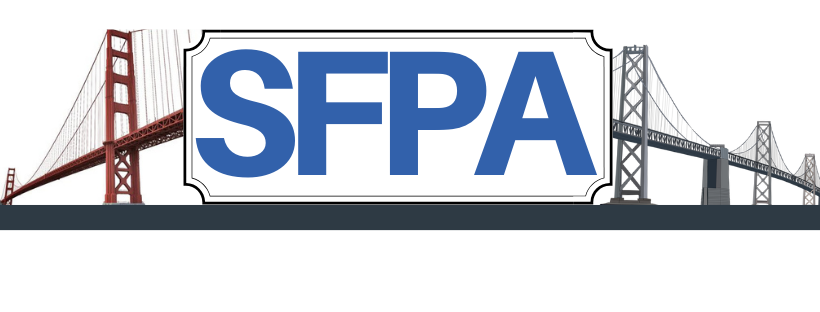The San Francisco Paralegal Association would like to congratulate Charles Curtis, student of the San Francisco State University Paralegal Studies program, for winning the 2012 F. Chantal Russell Scholarship! The $1,000 scholarship will be used to pay for costs incidental to the pursuit of a paralegal studies certificate.
Below is his winning essay:
Chantal B. Russell Scholarship Essay: Implications of MCLE Definitions for California Paralegals
Paralegals and attorneys in California are required by statute to complete a prescribed number of hours of mandatory continuing legal education (MCLE) on an ongoing basis. Though the requirements for each group are similar, there are also some significant differences, which raise a number of concerns when closely examined.
All paralegals are subject to the same two-year compliance period; the current period ends December 31, 2012. During this time, each paralegal must complete a minimum of four hours on legal ethics and four hours on general or specific legal topics. These hours must be certified with the paralegal’s supervising attorney.
Attorneys, on the other hand, are divided by last name into three staggered, three-year compliance groups; the next reporting deadline, for attorneys with last names starting with the letters A through G, is February 1, 2013. Each attorney must complete 25 hours of education, including at least four hours on legal ethics; one hour on prevention, detection, and treatment of substance abuse or mental illness; and one hour on elimination of bias in the legal profession. These hours must be reported to the California State Bar.
Multi-year compliance periods allow for busy lives, both personally and professionally, but they may also encourage those in the legal field to postpone completion of the requirements and to work for extended periods of time without engaging in any continuing education. Further, the disparity in the length of the respective compliance periods means that attorneys who meet only the minimum requirements will complete just two-thirds the number of ethics hours completed by paralegals over the same number of years. Is it reasonable to think that attorneys require less ethics education than do paralegals?
Of perhaps greater concern is the way that the MCLE requirements are defined. California Business and Professions Code section 6450(d) describes the nature of the requirements for paralegals and refers to BPC section 6070, which describes the requirements for attorneys and indicates that the State Bar will approve education activities. Section 6070, in turn, points to the California Rules of Court. There, rule 9.31 reiterates the basic requirements for attorneys and notes that the State Bar is responsible for establishing and administering an MCLE program. Finally, the Rules of the State Bar (Title 2, Division 4, where the M in MCLE stands for minimum, not mandatory) provide an extensive description of the approved, and unapproved, types of educational credit and activities -- but these rules are written for attorneys, not paralegals. While some of the general principles might reasonably apply to paralegal MCLE, it is clear that the guidelines were not developed with paralegals in mind. In fact, the most specific and relevant description of the continuing education requirements for paralegals appears in the first link of the chain of definitions, BPC section 6450(d). Subsequent statutes and rules point, ultimately, to rules that simply don’t apply to paralegals.
The regulation of paralegals is a fairly recent, and evidently incomplete, development in California. Setting standards for education and behavior helps elevate the profession, but insufficient acknowledgment of the unique role of paralegals calls into question the adequacy of the recognition. If paralegals are subject to continuing education requirements, they deserve to have those requirements defined more specifically by rules tailored to their distinct place in the legal field.

